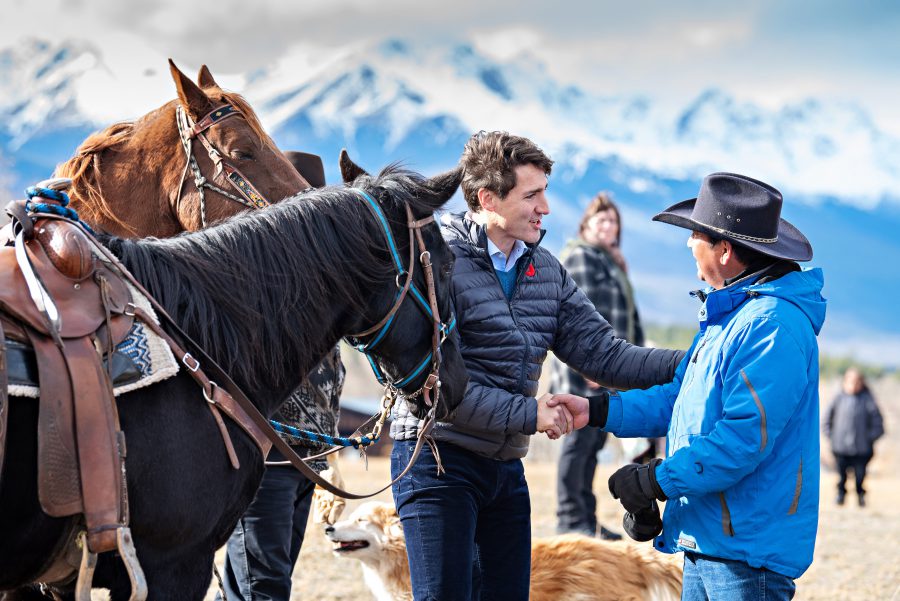Prime Minister Justin Trudeau released a statement following his visit Friday to the Nemiah Valley to personally deliver a statement of exoneration for six of the Tsilhqot’in Nation’s war chiefs who were hanged 154 years ago.
Trudeau said acknowledging past mistakes is an important part of renewing the relationship between Canada and Indigenous peoples.
“It was important to me to meet members of the Tsilhqot’in Nation and deliver in person the statement of exoneration of six chiefs – heroes of this Nation – who were treated and tried as criminals,” he said.
“Together, with the Tsilhqot’in leaders, elders, and youth, we can build a new relationship – based on respect, recognition of rights, collaboration, and partnership – and realize a better future for the Tsilhqot’in peoples, for all of Canada, and for the generations that will follow.”
During the visit, Tsilhqot’in members confirmed their shared priorities and vision for the future by signing a pathway letter with Trudeau who was joined with Minister of Crown-Indigenous Relations Carolyn Bennett.
The letter outlines commitments to reach milestones on the path to self-determination.
Trudeau’s statement was originally delivered in the House of Commons on March 26, 2018.
“As Tsilhqot’in representatives, we are honored to be hosting the Prime Minister on our declared Aboriginal title lands,” TNG Tribal Chairman Chief Joe Alphonse said.
“This event is about healing.”
“It will be a day marked in the history books for the Tsilhqot’in Nation and all of Canada. On March 26th we were in the Prime Minister’s government house, yesterday– for the first time in Canadian history – the Prime Minister was in our government house.”
Tsilhqot’in Chiefs Klatsassin, Biyil, Tilaghed, Taqued, Chayses and Ahan led the Tsilhqot’in war effort in the spring of 1864 in response to a colonial crew attempting to build a road through their territory without the agreement of the Nation. They were called to what they thought were peace talks on August 15, 1864, to end the war but instead were tried, convicted and hanged for murder.
Something going on in the Cariboo you think people should know about?
Send us a news tip by emailing [email protected].








